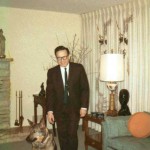 History tends to correct the errors of contemporaneous perceptions, and on the 50th anniversary of his assassination there were far fewer mentions than in prior years about President Kennedy’s “greatness.”
History tends to correct the errors of contemporaneous perceptions, and on the 50th anniversary of his assassination there were far fewer mentions than in prior years about President Kennedy’s “greatness.”
I was coming of age when President Kennedy was shot, and well remember the shock, first in my high school study hall and next in Spanish class. But by the time of the tragedy I already knew too much about his administration, and in subsequent decades other Americans and I were to learn much more that we really did not want to know.
A useful corrective to Kennedy hagiography is the section on his administration in Paul Johnson’s History of the American People. (Caveat: Johnson sometimes makes factual errors as a historian, but not on this topic.) Johnson ranks Kennedy among the worst Presidents, somewhat below President Warren Harding in his revisionist view. But let Mr. Johnson speak for his eloquent self. I’ll review what I already knew at age 15 and also some of what we all have learned since.
Neither I nor anyone else except the admiring Washington press corps knew that this President was in some ways a modern-day Emperor Commodus—a handsome young man of promise who wasted enormous amounts of irreplaceable time on adulterous affairs rather than attending to his official responsibilities. Nor was he particularly discrete about whom he bedded: Years later, the nation was shocked to learn that he had been sharing a mistress with a Mafia don. All this was fun for him, of course, but one wonders what the nation gained—or rather lost—from it.
 Being from a medical family, I already was aware that Kennedy was promoting enormous new federal involvement in the American health care system, and that he was far understating the actual cost. Sydney Natelson (1911-2007), my father, was a physician and a close observer of national politics. (He is pictured to the left at home in 1966.) He noted that Kennedy’s Medicare proposal was partly duplicative of existing state programs, but was structured in a way that would undermine the traditional doctor/patient relationship and turn independent physicians into bureaucrats. My father also predicted it would raise the deficit. No one, except maybe the Kennedy aides who knew the real numbers, understood that Medicare also would help render health care unaffordable for the middle class, and eventually threaten the nation with bankruptcy.
Being from a medical family, I already was aware that Kennedy was promoting enormous new federal involvement in the American health care system, and that he was far understating the actual cost. Sydney Natelson (1911-2007), my father, was a physician and a close observer of national politics. (He is pictured to the left at home in 1966.) He noted that Kennedy’s Medicare proposal was partly duplicative of existing state programs, but was structured in a way that would undermine the traditional doctor/patient relationship and turn independent physicians into bureaucrats. My father also predicted it would raise the deficit. No one, except maybe the Kennedy aides who knew the real numbers, understood that Medicare also would help render health care unaffordable for the middle class, and eventually threaten the nation with bankruptcy.
Kennedy is remembered for the “Kennedy round” of income tax cuts, a Keynesian exercise designed as “stimulus,” and later pointed to as a model by Republicans as well. Its flaws were that without spending reductions, the tax cuts added to the deficit and any stimulus effect soon expired, being replaced with inflation and/or renewed sluggishness. Kennedy’s Harvard boys (unlike Obama’s Harvard boys and girls) understood that lower tax rates encourage enterprise, but they thought government spending does also. Actually, government spending ultimately discourages enterprise by inefficient use of valuable resources, creating incentives not to be productive, and feeding the corps of regulators and dependents that weaken the private sector.
In foreign affairs, Kennedy cultivated an image of toughness, but the record was otherwise. During his 1960 campaign, he argued that the Eisenhower administration had allowed the U.S. to lag behind the USSR in missiles (the “missile gap”). This turned out to be fiction. While President, Kennedy authorized a coup d’etat against the elected president of South Vietnam, thereby eliminating the only leader with a hope of handling the Communist Viet Cong. The result was a much wider war and much deeper American involvement.
Then there was Cuba: In 1961, over the objections of advisors such as Commander of Naval Operations Arleigh Burke, Kennedy deserted at the Bay of Pigs an army of Cuban freedom fighters the U.S. had trained and delivered. The year after the ensuing massacre, Kennedy’s administration repeatedly denied reliable reports that the Soviets were placing inter-continental ballistic missiles in Cuba. Kennedy changed his mind a few days before the mid-term congressional elections, a timing that helped contain Democrat losses. In a dramatic address (which I remember watching), Kennedy outlined a plan to force those missiles out. This confrontation took us to the edge of World War III, but the ultimate outcome was a fizzle. In exchange for unverified removal of the missiles, Kennedy made a series of unpublicized concessions to the Soviets. Among them: The U.S. was to remove missiles from NATO ally Turkey, and Castro was to remain in power indefinitely. Castro thereby was left in place to promote international discord for another 40 years; and the Cuban people even now remain locked in the prison he constructed.
Then there were the widespread wiretapping and other civil liberties violations, Kennedy’s relative inability to deal with Congress, and so forth.
In recent days, there has been some speculation about what might have happened if Kennedy had lived. These speculations take for granted that he would have won a second term. But this is an inadmissible assumption: Just before his death, Kennedy’s re-election was far from assured. It could have been forestalled completely by one or two more missteps of the kind he had already made.
A more interesting topic for speculation is what might have happened if the votes had been counted honestly in Kennedy’s first election—and if Vice-President Nixon had been as persistent in demanding a recount in 1960 as Vice-President Gore was to be in 2000. There have been widespread claims of theft in several closely-contested American presidential contests (1824, 1876, 2000). The election of 1960, however, was the most likely to have been stolen. The vote counting in both Illinois and Texas was deeply compromised (this is no longer a matter of dispute), and the switch of both states’ electoral votes would have prevented Kennedy from becoming President.
Richard Nixon was then less jaded than he later became, and although young, was older than Kennedy and a good deal more diligent and experienced. His presidency could hardly have been worse than Kennedy’s, and might have been a good deal better. At least we might not today be at the edge of fiscal ruin.







